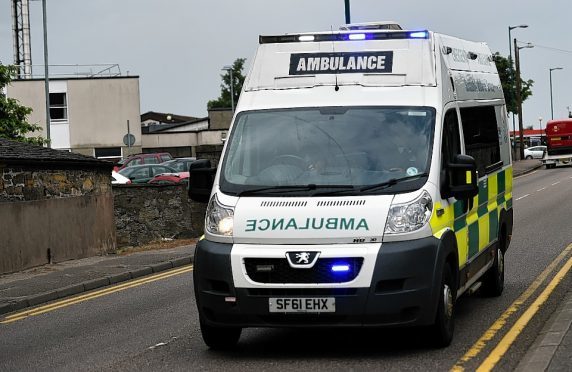Paramedics have claimed morale among “overworked” ambulance crews has plunged to rock bottom, with a quarter of all sick leave caused by stress.
Health Secretary Shona Robison has previously said staff welfare is of “critical importance” to management.
But crews maintain they are routinely scheduled to work draining 72-hour shifts with little rest, and have voiced fears that their shattered state is putting patients at risk.
One paramedic said it was common to be called upon to perform four-hour round trips transferring patients between hospitals after already working for 11 hours.
They added: “The service relies on the goodwill of staff to keep this creaking organisation afloat.
“Because this is an emergency service, it seems acceptable to make us go without breaks and work ridiculously long hours.
“But this is dangerous for us, for patients and for other road users.”
Last night, Scottish Ambulance Service bosses insisted they were working with several partner groups to reduce the burden on paramedics.
Unite the Union regional officer, Tommy Campbell, asked that SAS bosses more closely monitor staff wellbeing.
He said: “We want to know how regularly management is carrying out health and safety risk assessments in respect of staff shift patterns which they have created.
“They are clearly detrimental to the employees.”
Earlier this month, it emerged that 24% of paramedics’ sick days have been taken through stress between 2011 and last September.
Figures up until September 2016 show that 38,645 sick days were taken by crew members in the north-east.
A total of 9,113 of those were due to stress.
Moray MSP, Richard Lochhead, has worked with crews for several months to press for improvements.
He added: “I have been given assurances that extra resources are now being deployed and that many of the issues are finally being addressed.”
Last night, Milne Weir, general manager for north division at the ambulance service, said: “We are determined to provide patients in Grampian with the highest possible level of care and to protect staff welfare.
“This means investing in the skills of our workforce, increasing staff numbers, new vehicles, having access to major trauma equipment and collaborating with our partners in the NHS and beyond.
“There is always more we can do to further progress and we will continue to engage with our staff, patients, communities, MSPs and our many partners to deliver the safest and most effective service.
“A major opportunity going forwards is to continue to develop our co-responding work with our partners and within communities, in particular in response to patients experiencing cardiac arrest.
“This includes working with Police Scotland, the Scottish Fire and Rescue Service, community first responders, the Sandpiper Wildcat Project and the British Association of Immediate Care Scotland, as well as providing the general public with vital CPR skills.
“By working together, we can save even more lives and further improve patient care, which is what the Scottish Ambulance Service and our dedicated staff are here to do.”
